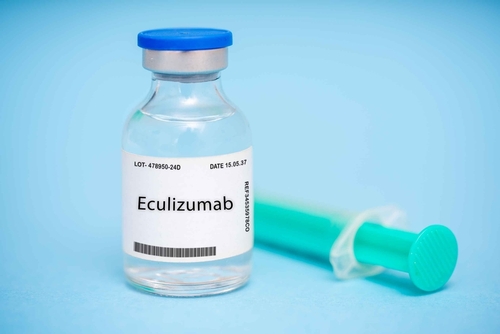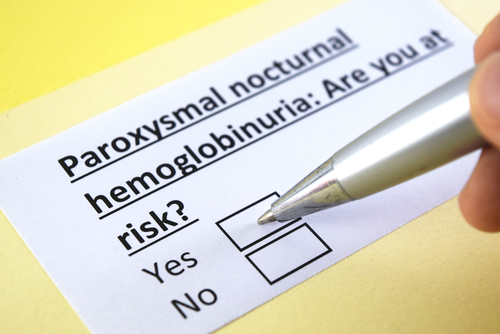
The international PNH Registry conducted a prospective, multicenter, observational study that evaluated the overall survival (OS) and first occurrence of thromboembolic events/major adverse vascular events (TEs/MAVEs) in patients with paroxysmal nocturnal hemoglobinuria (PNH) treated with eculizumab.
The results of the study were published in the European Journal of Haematology.
Conducted over a period of 15 years, the study included 4118 patients with PNH. Patients were categorized into 2 groups: those treated with eculizumab >35 days and those who did not receive eculizumab at any time during the study. Univariable and multivariable analyses were conducted using a Cox proportional hazards regression model, adjusting for baseline covariates such as age, sex, high disease activity (HDA), transfusion dependency, and eculizumab treatment status.
Univariable analysis revealed a hazard ratio (HR) of 0.51 (95% CI, 0.41-0.64), indicating a 49% relative reduction in mortality risk during eculizumab-treated periods compared with untreated periods (P<.0001).
Further analyses showed that certain baseline factors, such as HDA, played a significant role in enhancing the survival benefit. Patients with baseline HDA experienced the greatest reduction in mortality risk, with an HR of 0.51 (95% CI, 0.36-0.72).
In addition to improving OS, eculizumab also exhibited a protective effect against TEs and MAVEs in patients with PNH. The adjusted analysis revealed a nearly 60% reduction in the risk of TEs (HR, 0.40; 95% CI, 0.26-0.62) and MAVEs (HR, 0.37; 95% CI, 0.26-0.54) during eculizumab-treated periods compared with untreated periods (P<.0001).
The study does carry limitations, however. Adjusting for baseline factors and other variables doesn’t entirely account for variations in disease severity between treated and untreated patients. Also, the study focused on all-cause mortality and couldn’t distinguish PNH-specific causes of death, and its noninterventional, retrospective format may have resulted in missing data and incomplete reporting.
“The findings of this analysis add to the considerable body of real-world evidence demonstrating the long-term survival benefits as well as meaningful reduction in the occurrence of TEs and MAVEs associated with eculizumab in patients with PNH and provide a substantial patient sample and contemporaneous data for comparator populations,” the investigators concluded.






 © 2025 Mashup Media, LLC, a Formedics Property. All Rights Reserved.
© 2025 Mashup Media, LLC, a Formedics Property. All Rights Reserved.